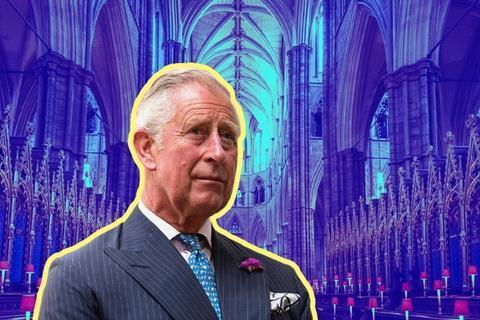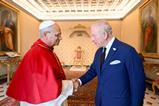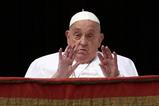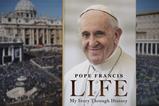Holy oil for the anointing of King Charles III at his coronation on 6 May has recently been consecrated in Jerusalem. Catherine Pepinster explains the significance of anointing kings, why this oil is special and how its consecration was such an historic moment

How important is the anointing ceremony of a British monarch?
When the King’s coronation takes place on 6 May 2023, it will include three significant ceremonies: his taking of oaths, his anointing and then the crowning. It is the anointing which is the most sacred moment.
Why is that?
It signifies God’s blessing being conferred on the person during the ceremony, just as anointing does during baptism, confirmation and the ordination of a priest. While water, used in baptism, signifies the washing away of sin, sticky oil represents the ‘sticking’ or lasting nature of a blessing.
Is this tradition of anointing the monarch rooted in scripture?
Anointing a chosen leader is mentioned several times in the Old Testament. Saul was singled out as a ruler through anointing: “Samuel took a phial of oil and poured it on his head, and kissed him; he said, ‘The Lord has anointed you ruler over his people Israel’” (1 Samuel: 10:1).
There are several references in the Old Testament to David’s anointing by a priest. But it is Solomon, David’s son, who is perceived as the ideal king in the British coronation tradition. For more than 1,000 years the words of 1 Kings 1:38–40 have been said during the coronation, and since the 18th century sung as an anthem specially composed by Handel for the coronation of George II:
Zadok the Priest and Nathan the prophet anointed Solomon King.
And all the people rejoiced, and said:
God save the King!
Long live the King!
May the King live for ever, Amen, Hallelujah.
If an anointing conveys a blessing, why not do it regularly to help the monarch through their reign?
Just as somebody is only baptised once, or confirmed or ordained once, so anointing of a monarch only happens at the coronation. Roman Catholics and Anglicans would see it as akin to a sacrament – an outward sign of inward grace. It is so powerful a moment that it should spiritually sustain the person for the rest of their life.
The oil that has been consecrated for the coronation of King Charles is called chrism oil. What does this mean?
Chrism means a mixture of balsam and olive oil and comes from Latin, Greek and Hebrew words meaning to anoint. It is also usually perfumed and the combination of fragrance and richness from the oil was seen as symbolising the gifts of the Holy Spirit combined with Christian virtue.
So what else is in it?
It has been perfumed with sesame, rose, jasmine, cinnamon, neroli, benzoin, amber and orange blossom but some traditional ingredients have been left out - the glands of a civet cat, ambergris (the stomach lining of a sperm whale) and the secretions of a musk deer. In other words, the King is swerving animal cruelty.
Is this his most personal touch?
No, it is the oil that is being used that is so powerfully connected to his family history. The oil has come from olives harvested from two groves on the Mount of Olives in Jersualem, one of them linked to the Monastery of Mary Magdalene. The monastery is the burial place of the King’s paternal grandmother, Princess Alice of Greece.
After separating from her husband, Princess Alice founded a Greek Orthodox order of nuns and during the Second World War saved Jews from the Nazis in occupied Athens, causing her to be listed as one of the Righteous Among the Gentiles, at Israel’s Holocaust Remembrance Centre, Yad Vashem. In her later years she lived with her son, Prince Philip, Queen Elizabeth and their children – including the King – at Buckingham Palace until she died in 1969.
The King also has a longstanding interest in the Orthodox religion and has visited the sacred site of Mount Athos several times.
And who consecrated the oil, created in Jerusalem?
The Anglican Archbishop of Jerusalem, Hosam Naoum, and the Orthodox Patriarch of Jerusalem, His Beatitude Theophilos III, consecrated it together – marking an historic ecumenical moment in the history of British coronations.
How did this come about?
The Archbishop of Canterbury, Justin Welby, who will officiate at the coronation, was instrumental in this special consecration. He said: “Since beginning the planning for this coronation, my desire has been for a new coronation oil to be produced using olive oil from the Mount of Olives. This demonstrates the deep historic link between the coronation, the Bible and the Holy Land”.
Will we get to see it being used?
This is still not clear. At the last coronation, of Elizabeth II in 1953, the anointing was hidden from view beneath a canopy. She was, as is traditional, anointed on her head, hands and breast, and was divested of her coronation robes for this moment, leaving her in a white, linen shift. It is also not clear what the King will wear for the coronation.
And Queen Consort Camilla?
Consorts are also anointed, but only on the head.































1 Reader's comment